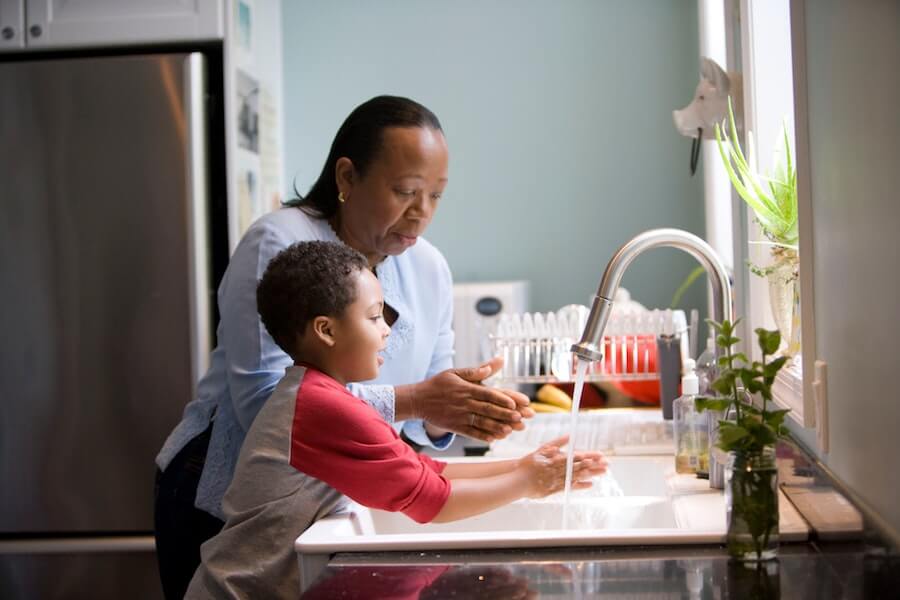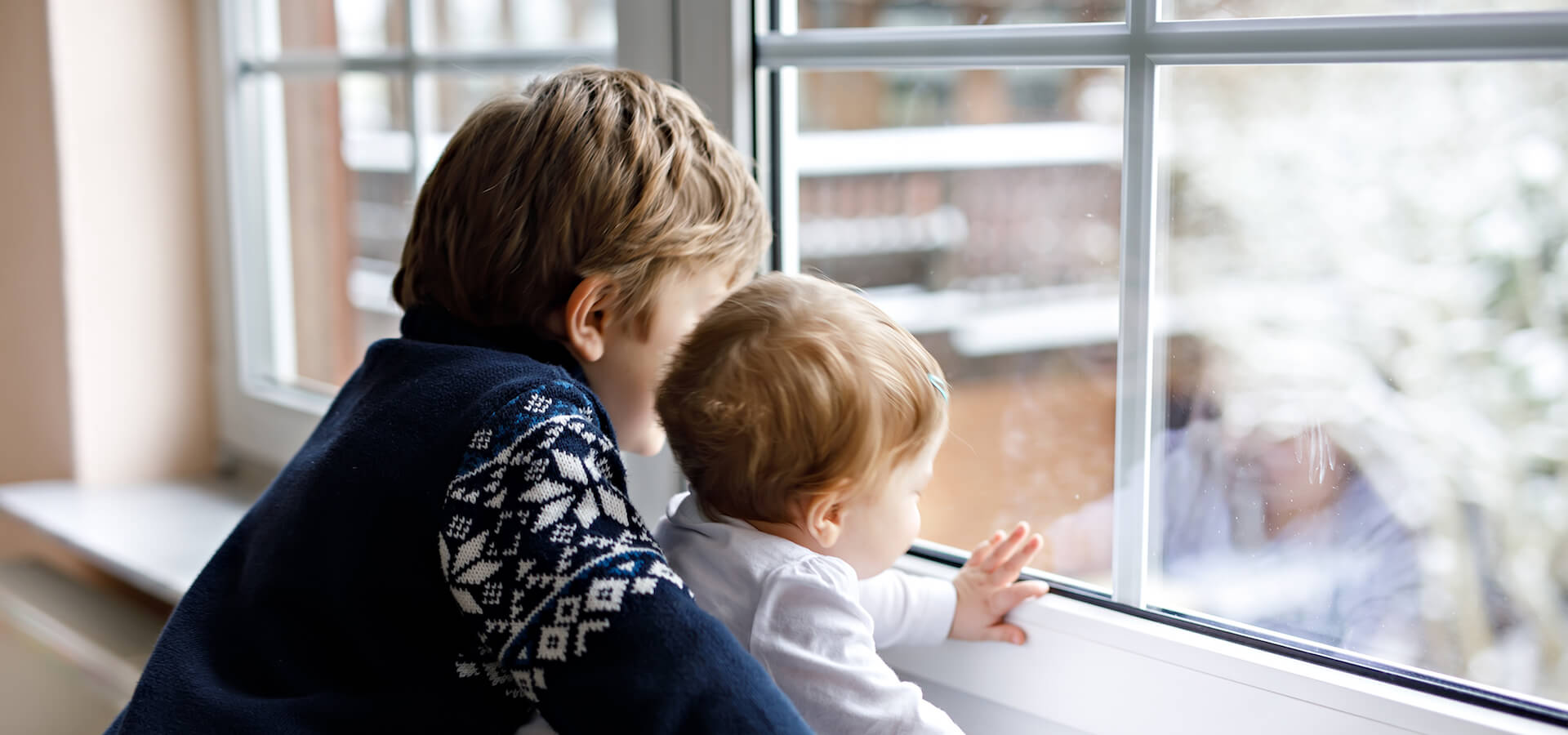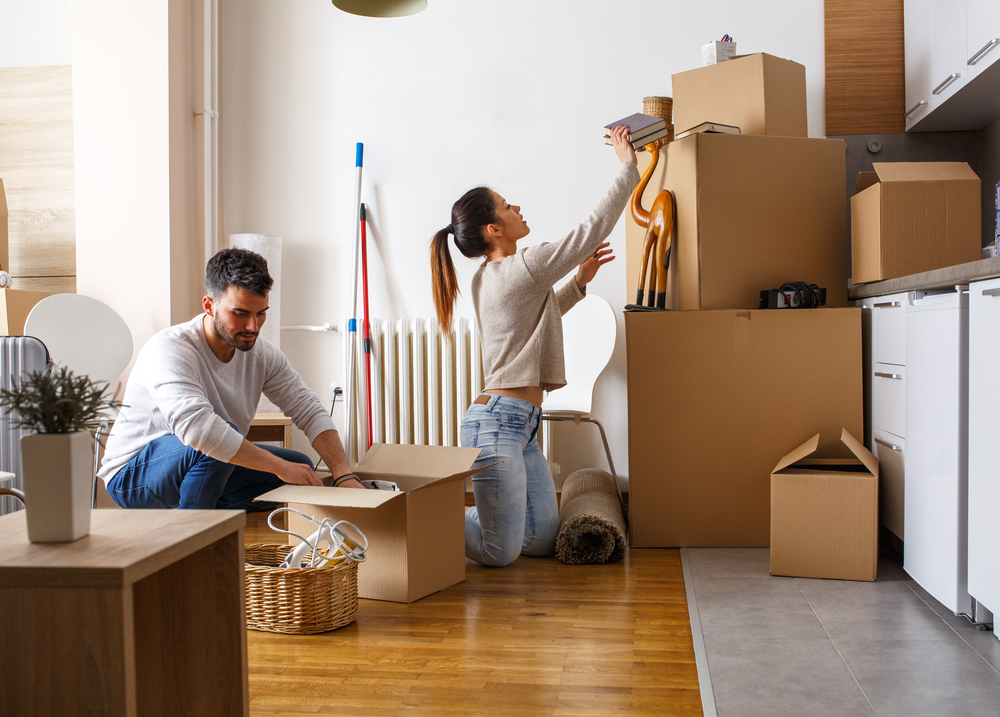With the practice of self-isolation commonplace around the world and the return of life as normal seeming far off, it’s more important now than ever to keep our home environments and families safe during COVID-19.
Australians are finding themselves working remotely, pulling their kids out of school, and watching more Netflix than they ever thought they would. With so much time spent indoors, we’re sharing advice from the experts to prevent the spread of coronavirus within our homes, helping to keep our families and communities safe within Australia.

Topics in this article:
It starts with keeping the virus out
While many tasks on our to-do lists have gone digital, some errands still require us to leave the comforts of our home. Whether you’re the designated grocery shopper, have an in-person appointment that can’t be postponed, or are still employed as an essential service, you’ll want to do everything you can to minimise the chance of bringing the virus into your household.
Create an area of transition
Start by creating an area of transition between the outdoors and inside of your home, usually at the main entrance to your home. Use this space to place belongings that have been on your person or outside, especially if you’ve been in contact with other people.
You’ll need a basket for the clothes that you’re currently wearing, and a tray for personal items such as phones, wallets, and keys. Be sure to keep a pack of disinfectant wipes nearby for when you choose to pick-up your items again. If possible, you should leave your shoes outside and remove before going inside.
What about mail, groceries, and takeaway?
Appropriately, many more of us are shopping online, so we’re bound to expect a few deliveries at the front door. Combined with groceries and the occasional takeout, you might be wondering what to do about the items we receive at our homes.
While there is a small risk, according to this World Health Organization, ‘the likelihood of an infected person contaminating commercial goods is low’. The sentiment is shared when it comes to food safety. ‘It is highly unlikely that people can contract COVID-19 from food or food packaging.’ For those who prefer extra precautions, here are some preventative measures you should consider.
- Avoid direct contact with a delivery person.
- Opt to have deliveries left in a safe place.
- Refrain from placing groceries on high-touch areas.
- Disinfect packages, parcels, and containers if necessary.
- Wash your hands before/after handling any items.

Build a routine of cleaning
While cleaning for many is a chore relegated to weekends, in the age of coronavirus, it’s more of a necessity than a burden. By building a routine from the following recommendations, you’ll reduce the likelihood of cross-contamination, providing your family much needed peace of mind.
Clean high-traffic and high-touch areas
As per the World Health Organization, coronavirus ‘may persist on surfaces for a few hours or up to several days’. For this reason, cleaning high-traffic and high-touch areas is the first step towards sanitising your home.
High-traffic areas and high-touch items include:
- Door handles
- Light switches
- Faucets and taps
- Toilet seats
- Tables
- Counters and benchtops
- Desks
- Laptops
- Tablets
- Phones
- Keyboards
- Remotes
- Keys
Prevent cross-contamination
For those performing a more thorough clean, Queensland Health recommends working your way through the property, from cleanest to dirtiest. This method helps minimise cross-contamination, reducing the risk of bringing germs, bacteria, and viruses from one room to another.
Another key factor in avoiding cross-contamination is to ensure that cleaning equipment is well maintained. Separating supplies for different areas of the household, allowing them to air-dry before storage, and disinfecting them before and after each use are just some of the ways to keep cleaning equipment effective and safe for use.
Always combine cleaning with disinfecting
Often misused for one another, cleaning and disinfecting are two completely separate processes that should be used in combination, not separately.
As per the NSW Department of Health’s ‘Cleaning and Disinfection Principles’ provided to residential facilities, ‘cleaning is an essential part of disinfection. Organic matter can inactivate many disinfectants. Cleaning reduces the soil load, allowing the disinfectant to work. Removal of germs such as the virus that causes COVID-19 requires thorough cleaning followed by disinfection’.
And with many supermarkets enacting strict purchasing policies, you might be unable to find disinfectant in your local supermarket. In the same document, the Department of Health offers guidance on the correct bleach to water ratios for creating household bleach effective in killing viruses.
Read the label instructions
It should come as no surprise, but you should always read the label and the manufacturer’s instructions for the cleaning solutions that you’re using.
Many anti-bacterial disinfectants are labelled as such but aren’t powerful enough to kill viruses. Even more, disinfectants often require sufficient time on surfaces before being rendered active. Wiping away disinfectant too soon can defeat the purpose of using it in the first place.
Handling laundry
Washing bed linen, towels and clothing is an activity that should happen regularly. When transferring laundry, avoid carrying it against your body, using a basket, hamper or bag instead. Wash clothing and linen on the warmest appropriate settings and allow items to dry completely before hanging or folding them for storage.
During a move
If you find yourself having to suddenly move during COVID-19, there’s still one last clean you’ll need to perform. A thorough bond clean returns your property back to its original condition, ready for your real estate agent to inspect, and for the next tenants.
If you’re finding the stress from the move impacting your mental health and wellbeing, visit Head to Health for resources on coping with issues surrounding coronavirus. Hiring professional movers or an end of lease cleaning company can also help with reducing some of the burdens of moving house.
Practice good hygiene
Lastly, even the highest level of cleaning and disinfecting isn’t a replacement for practising good personal hygiene, especially those recommended by the Australian Department of Health. Guidelines and recommendations are changing by the day, but these remain the necessary precautionary measures that we should continue to embrace.
- Wash your hands often with soap and water.
- Use alcohol-based hand sanitisers.
- Place used tissues immediately into a rubbish bin.
- Cover your coughs and sneezes with your elbow or a tissue.
- Avoid touching eyes, nose and mouth.
- Increase the amount of fresh air available by opening windows.
- Stay indoors.
- Maintain social distancing.
We hope these tips have given you actionable ways to help prevent the spread of coronavirus and will give you peace of mind that you and your family are staying safe at home.







